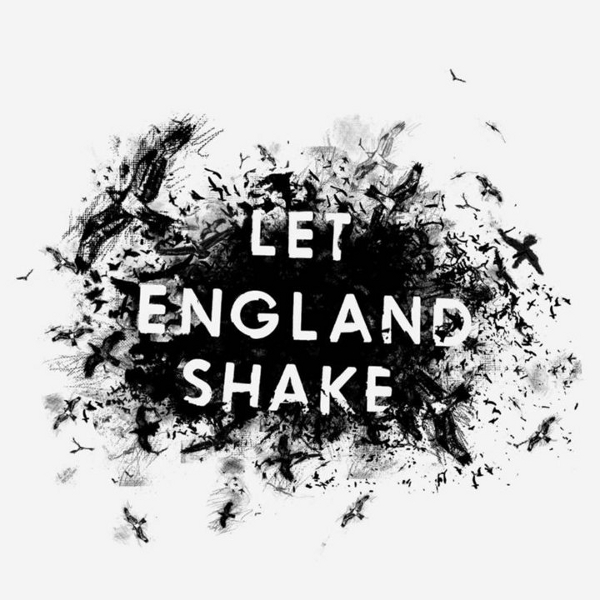5.0/5.0
PJ Harvey chants like Björk with the stature of an activist, complemented by frightening reverberation and lyrics.
PJ seems to call a meeting and give the low down on England in the album's first and title track. The conclusion? It's engulfed in isolation, having been destroyed, and it needs to desperately be woken up. PJ calls upon the country to “shake”, singing “weighted down with silent dead/I fear our blood won't rise again.” The lyrics force blame for England's less-than-likable state on the uncaring, as “indifference” appears to the victor in whatever battle the country was involved. The song's rhythm beats as if it were to follow marchers, those who greatly desire to see a better future for England. Backed with a xylophone melody, PJ's voice echoes as if through a microphone in a lecture hall to orient listeners with her thoughts in regards to the condition of modern England.
PJ seems testy on the subject of England's state and determined to assist in its betterment, as she begins on album's next song, “The Last Living Rose,” with “Goddamn Europeans!” The accent of the guitar appeals to her aggravation; strums coincide with PJ's list of England's previous character with attacking syllables, giving it a dark attitude yet one that is honest and ideal for a call to action. She describes England as “beautiful” in the second line; however, the following imagery leaves listeners with a rather different concept, presenting England as a place someone would begrudgingly visit: “Let me walk through the stinking alleys/to the music of drunken beatings.” England's PJ Harvey is vicious, utilizing spiked words and rigid musical phrases.
Royal trumpet sounds whimper pathetically in the beginning of the song, “The Glorious Land.” It mostly serves as an annoyance to the other goings on of the track-- a track that causes shivers with the way PJ projects her voice. She chants alone, in brief when calling out “Oh America!” but is joined by a team, for a stammering “Oh England!” showing that she is far more curt with America. It seems as if she's crying out to the people of England in sympathy and desire to reach out. She even questions on the next track, “The Words That Maketh Murder”: “What if I take my problem to the United Nations?” This song in particular has the chorus appearance of a 1950's pop single-- a very spooky one, like a haunted version of The Four Lads' “Istanbul.”
“England” best represents PJ's English depression. Her country's title track is softer and more sensitive than the freaky anxiety presented by the previous tracks. She sings in a high register as she does throughout the album, but it's particularly evident in this song, giving her a Thom Yorke presence (see: “Reckoner” from Radiohead's In Rainbows.) “I live and die through England/Through England/It leaves a sadness/Remedies never within my reach,” PJ Harvey sings, clearly broken by the condition of her home. It's the most believable when she makes her vocal break later in the song, turning it into a heartfelt piece.
Let England Shake moves quickly from “England” on, with a continued focus on her country's destruction. On “Bitter Branches,” she tells her crowd of listeners to “wave goodbye” with their “bitter branches” for arms to rifled soldiers, building up the distinct sense of decrepitude that England has faced and will inevitably face. PJ Harvey also maintains her position on the final track, “The Colour Of The Earth”, which she describes as, “dull and browny red/The colour of blood I'd say.” It has the musical charm of a happy-go-lucky Irish tune, with lyrics that do not represent the same blissfulness.
It's relieving to hear a female, singer-songwriter that doesn't pain my ears with something so painfully built up with romantic apprehension that wraps itself up so much in stereotype. PJ Harvey luckily is a very different type of songwriter. In Let England Shake she puts herself on a pedestal-- not in a demeaning manner, but in a way that forces people to listen and possibly realize the state of their own country.

No comments:
Post a Comment